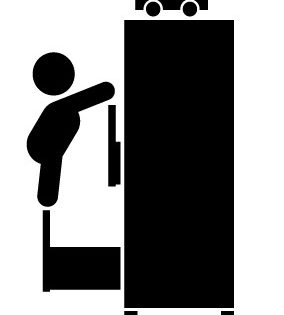Do these expressions sound familiar to you? As parents of more than one child, these may be just a few of the many complaints you hear from your children. Sibling rivalry is common in almost all households; although there are brothers and sisters who are close to each other, it is very rare to find siblings that get along well all of the time.
There are many reasons why siblings quarrel and fight with each other, including different personalities, ages as well as the fact that many of them compete for everything, from toys to attention. It can be pretty frustrating to watch your children constantly bicker and shout but there are some steps, that you can take to help your children get along better.
Why are Kids always Fighting?
- Attention. Children are always looking for ways to get attention from their parents, more so if you are very busy and have limited time for each of them. If there is a new arrival in your family, the older sibling finds it hard to accept that he no longer gets all the attention for himself. Feeling ignored, kids often act out such as refusal to eat or cry when they don’t get something in an attempt to get attention.
- Having to share. Resources are often limited in many homes. Thus, at one point or another, siblings may need to share at least some of their toys or other possessions. Needing to give up a favourite toy may be quite hard on younger children, sometimes even causing them to react aggressively to their sibling.
- Unique temperaments. Your kids’ moods, dispositions, adaptability and unique personalities all play a role in how well they get along with each other. Differences in temperaments often lead to clashes while age and gender difference may also cause fighting among children.
- Fairness issues. Children are always demanding equality and often fight for what they perceive as their natural rights. Older siblings who have to take on household chores or look after their younger brothers and sisters may resent this responsibility, while younger siblings may feel unhappy about staying home when their older siblings get to go out.
- Jealousy. The academic achievement of one sibling and praise by the parents tend to evoke anger and jealousy in the sibling who is somewhat weaker in studies.
Taking Charge of Matters
Taking charge sometimes may just mean letting your children scream it out. As long as neither of them is in danger of getting hurt, try to let your kids resolve their own issues and avoid stepping in for as long as you can. However, if things do get out of hand, here are some tips in which you can use to resolve the issues.
- Time-out. Sometimes children need their own space and a little time away from each other. Send them to their respective rooms till they cool off.
- Don’t choose sides. Never compare your children even if one always gets into trouble and the other is an angel. This may only cause resentment among your children. Furthermore, the relationship between you and your children may also be strained if you prefer one to the other.
- Teach compromise. Teach your children how to resolve issues in a way that makes them both satisfied. Ask them to stop shouting and for each of them to voice out their side of the story. Listen and then ask them to come up with a solution that makes both of them happy. If they can’t come up with any ideas, then you introduce a solution, such as giving them each a set time to play with the new toy they were fighting over.
Nip It in the Bud!
- Enforce rules – Strictly no yelling, name-calling or door slamming.
- Don’t make everything equal – Treat each child as a unique and special individual. Older siblings will generally have privilege to certain things such as staying up later than their younger siblings.
- Give each child special time – Try to have one-onone time with each of your child as children often crave attention. Even 10-15 minutes of your time each day can make your child feel special.
Most of the time, arguments among siblings often stop before much damage is done. But in some cases, the fighting may come to a point where one sibling is emotionally or physically abused. Parents need to step in if there is repeated hitting, teasing or belittling, which are all forms of sibling abuse. If things are too much for you to handle, call your child’s paediatrician or a mental health provider for help. Resolve matters before they get out of hand!







Comments